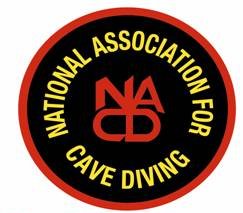A Letter for the Open Water Diving Community
Since the 2007 dive season in Florida is underway we at the NACD would like to take the opportunity to discuss with you an important topic related to diving in Florida.
This year has had its share of cave-related diver fatalities. Currently, the death toll in Florida caves includes two experienced cave-trained divers and two non-cave trained open water certified divers. This adds to the fact that over the years the NACD has seen an unacceptable rate of non cave trained divers perishing in the cave environment. Most of this is likely due to the divers not being fully informed of the hazards and specialized training that diving into the caves requires.
Our guidelines of accident analysis have shown that the following are the primary causes for untrained divers dying in caves:
Lack of training for the overhead environment.
Lack of using a permanent guideline when in the environment.
Not using safe and proven gas management rules.
Diving too deep, beyond their level of training.
Not using the proper equipment for the environment.
Over the years we have found that divers have perished for all the above reasons. Open water-trained divers, attracted to the crystal clear waters and inviting cavern entrances, can unknowingly enter a cave. Their flutter kicks stir up the silty bottom, which slowly closes the door of visibility behind them. Eventually they turn and have lost visual reference to the surface and with no line of reference may inadvertently follow the clearer water deeper into the cave or spend precious moments blindly searching for the exit, which eludes them.
The NACD hopes you will review these guidelines before considering which dive sites you will visit. Our Public Relations and Safety committees have volunteers that are always available to speak to you, your local dive shop or dive club. To arrange for one of our Public Relations members to speak to you please contact Walter Pickel at 813-843-1588 or send email to
pr@safecavediving.com.
Go to
NACD Safety Brochure and download a copy of our safety brochure for you to help educate yourself and other divers of the hazards involved with cavern and cave diving.
In closing, if you have any comments or questions about cave related safety in your area please contact the NACD Safety Officer Richard Dreher at 612-508-4469 or send email to
safety@safecavediving.com.
Jeff Bauer, Rick Murcar, Larry Green, Jim Wyatt, Bert Wilcher, Richard Dreher and Tracy Grubbs
Board of Directors, National Association for Cave Diving




 :grinjester:
:grinjester:




